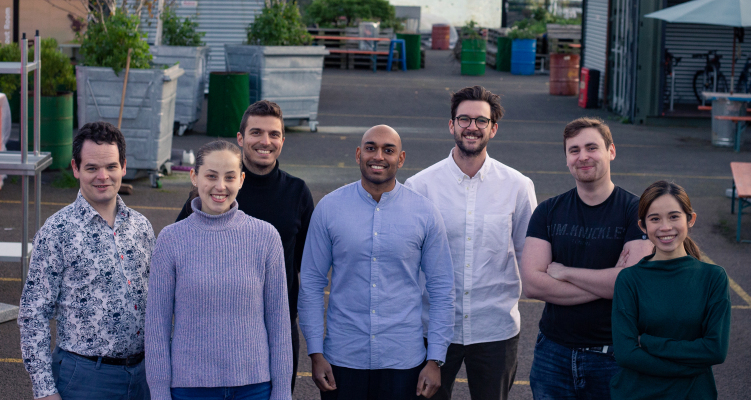Better Dairy, a U.K. startup developing animal-free dairy that was founded out of Entrepreneur First (EF), has picked up £1.6 million in seed funding. The London-based company is currently in the R&D stages of developing products that are “molecularly identical” to traditional dairy without using animals as part of the production process.
This seed round was led by Happiness Capital, alongside a number of other investors in the space. They include CPT Capital, Stray Dog Capital and Veg Capital, in addition to various unnamed angel investors. Better Dairy says it will use the funds to accelerate its R&D efforts with the aim of commercialising its first products by early 2022.
Founded in 2019 by Jevan Nagarajah (CEO) and Dr. Christopher Reynolds (CTO), both alumni of Imperial College London but who paired up during EF’s company builder program, Better Dairy is using advancements in technology to address the hugely unsustainable dairy market. Nagarajah has plenty of tech company experience, including stints at Rocket Internet, SumUp, and Ritua, as well as founding early ‘dark kitchen’ startup ShareDining. Meanwhile, Reynolds holds a PhD and a number of post-doctorates across bioinformatics and synthetic biology, and has a degree in natural sciences spanning chemistry and biochemistry.
Nagarajah says animal-based dairy farming is “hugely unsustainable,” noting that it emits the equivalent of over 1.7 billion tonnes of CO2 into the atmosphere each year and it takes 650 litres of water to produce just 1 litre of milk. “Dairy products themselves contain several unwanted pollutants such as growth hormones and antibiotics by virtue of the process of milking mothering cows and are thus not the most suitable for human consumption,” he adds.
However, although plant based alternatives are gaining popularity, Nagarajah argues that they are not a complete solution, often lacking in flavour, texture and nutritional profile. And while they might be able to capture market share, he doesn’t believe plant based alternatives to dairy will be successful in “radically” disrupting the existing $700 billion dairy industry and supply chain. That’s where Better Dairy comes in.
“We are instead using yeast fermentation and biology to produce products that are molecularly identical to traditional dairy,” he explains. “We follow a process very similar to beer brewing but the end result in our case is large vats of dairy instead of beer. This production process, while seemingly futuristic, is actually already being used to produce several enzymes for food production, for example rennet, as well as to produce numerous medical products such as insulin, so we are just building on this”.
Better Dairy is still early on in its R&D process, but has already managed to produce its first dairy samples in the lab. The first challenge was to manipulate yeast to produce initial dairy proof of concepts. “Following this, we believe we have identified a clear path to get us to commercially viable products,” says Nagarajah. “While some of our milestones are box ticking exercises, for example the scaling up of our manufacturing capabilities, the major challenges we need to overcome revolve around the optimisation of our end to end production process”.
That’s because, explains the Better Dairy co-founder, dairy is a relatively low cost good. To realistically disrupt the existing dairy market, the startup will need to achieve a certain level of efficiency otherwise it risks succeeding in producing better dairy but will still fail overall due to prohibitively high pricing.
“We are initially focused on dairy proteins with the view of extending our range to fats over time,” says Nagarajah. “The main dairy proteins whey and casein have many structural and nutritional benefits and are used as ingredients across thousands of food products. They are crucial in providing the texture of dairy products like cheese but are also used heavily in soups and ready meals, baked goods and pastries, chocolates and sweets and also pasta and bread. They even find their way into products like beef burgers and chicken nuggets to bolster protein content and add texture.
“While our intention was initially to enable a wave of better dairy products, our ambitions have grown to target the disruption of the entire dairy supply chain across dairy and non-dairy categories. Our vision is to create a world where humans are vegan without even realising it”.
[ad_2]
Source link


